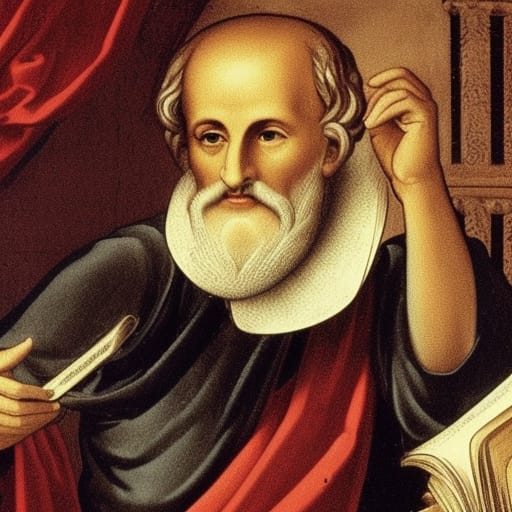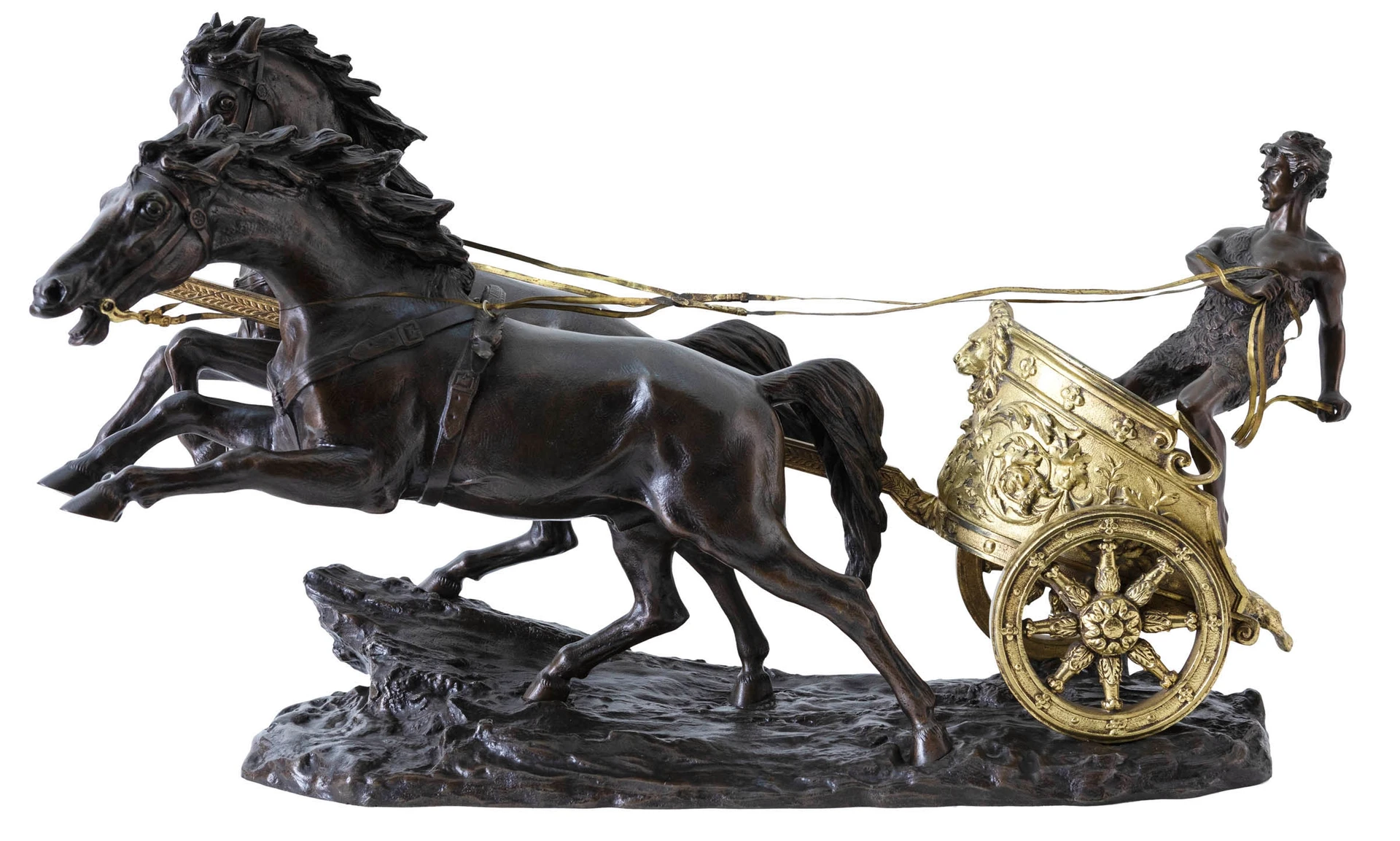The Philosopher of Philosophers: an Introduction to Aristotle
Practical Ethics to Achieve Self-Fulfilment
Widely considered one of the most important figures in the history of Western philosophy, Aristotle emerged from the cradle of Western civilization, ancient Greece, a land of rugged mountains, sparkling seas, and a rich tapestry of city-states. Each of these city-states had its own government and culture, with people who were fiercely proud of their own heritage.
Born in Stagira in Northern Greece in the 4th century BCE, he spent nearly 20 years studying at Plato’s Academy in Athens, before venturing out into the world to explore, to learn, and to teach. Fascinated by the natural world, he would spend many hours studying the animals and plants of these lands. He was also deeply interested in the political and social issues of the day and was influenced by the ongoing conflicts and wars between the Greek city-states.
On his return to Athens, he founded his own school, the Lyceum, where he spent over a decade teaching and conducting research, making significant contributions to politics, ethics, and logic, as well as biology, physics, and psychology.
We will be focusing on his ideas on ethics, the concept of eudaimonia, and his belief that the ultimate goal of human life is to reach a state of flourishing and fulfilment. We will then look at his ideas about the pursuit of virtue and an ethical Golden Mean.
Let’s start by looking at his definition of Man as a linguistic animal capable of reason.
i. Definition of Man as a Rational Animal
In his work Politics and in Nicomachean Ethics, Aristotle writes that “man is by nature a political Animal.” Additionally, in De Anima (or, On the Soul as it is known in English), he states that “the human being is an animal with logos.”
“Logos” is a Greek word with a range of meanings, including word, reason, speech, or principle. In Latin, the closest equivalent to the Greek logos is “ratio,” which also has a broad range of meanings, including reason, calculation, or proportion. This translative route likely led to the english version, “man is a rational animal.”
Human beings have a physical and emotional nature that they share with animals. However, we also have the capacity for reason, thought, and understanding. In On the Soul, Aristotle explains that the rational part of the soul is what distinguishes people from other animals. It is what gives us the ability to think and understand. Arguing that the soul has three parts – a vegetative part, a sensitive part, and a rational part – he believes that the rational part of the soul is responsible for thought, understanding, and will.
Let’s take a closer look. In Nicomachean Ethics, Aristotle explains that the function of human beings is to reason, and that the good life for a human being is the one where this reasoning function is performed well and in accordance with virtue. We have the ability to deliberate, to make choices, and to act according to what reason dictates.
In Politics, Aristotle also argues that human beings are social animals.
Living in a political community is necessary for human flourishing. Human beings have the ability to make laws, and these laws are essential for the preservation of a community and for the protection of individual rights.
ii. The Proper Function of Human Beings
Rationality, then, as our distinctive characteristic, is also intrinsically linked to our proper function. In Nicomachean Ethics, Aristotle argues that every living thing has a function, or “telos”, that defines its nature.
He proposed the concept of natural law to explain that there is a natural order to the universe and that human beings have a natural inclination to act in accordance with this order. This natural inclination is rooted in the function or purpose of each thing. For human beings, this function is to reason and to use their rational capacity to understand the world and themselves. The ultimate goal is to reach eudaimonia, sometimes translated as “happiness”, but which can be understood as a state of flourishing and fulfilment.
Eudaimonia is achieved by living a virtuous life, habitually choosing to act in ways that conform to moral virtues such as courage, justice, and wisdom.
Aristotle believed that moral virtues are the mean between two extremes of excess and deficiency. Therefore, the virtuous person is the one who finds the right balance in all things.
Aristotle also believed that practical wisdom, or “phronesis”, is necessary to live a virtuous life. He defined it as the ability to deliberate and make choices that are in line with moral virtues and that promote eudaimonia.
In Nicomachean Ethics, Aristotle explains that practical wisdom is not something that can be taught in the same way that mathematical concepts can be. Instead, it’s a habit that is formed by repeatedly acting in a certain way, and is acquired through practical experience and by observing the actions of others.
He writes that “experience is not an adequate teacher, but experience combined with theory makes it so.” Therefore, by combining theoretical knowledge with practical experience, we can develop the ability to make the right choices and to understand what is best for us in any given situation.
Education should also be aimed at developing practical wisdom. Young people should be educated in the virtues and in the practical skills that are necessary for living a good life. The best education is one that helps young people mature into virtuous adults by developing their capabilities and potentials in order to lead a good life.
iii. The Pursuit of Virtue and the Golden Mean
According to Aristotle, we pursue virtue by habitually choosing to act in ways that conform to moral virtues. In Nicomachean Ethics, he argues that moral virtues are the mean between two extremes of excess and deficiency. The virtuous person is the one who finds the right balance in all things. He calls this balance the “golden mean.”
The Golden Mean is not a fixed state, but something that needs to be continuously cultivated, and that can change with the context and the person. We develop moral virtues through habit and practice. By repeatedly choosing to act in a certain way, we can develop the ability to act virtuously without thinking about it. We should, therefore, repeat good actions, and these actions should be in accordance with the right reason. The Golden mean is not a compromise, but a dynamic balance, where the virtues are displayed in the best possible way.
Aristotle gives several examples, especially in Nicomachean Ethics, related to the Golden Mean and how it applies to virtues.
For example, the virtue of courage is the mean between extremes of cowardice and recklessness. A courageous person is someone who is not afraid to face danger when it is necessary, but also avoids unnecessary risks.
Similarly, the virtue of generosity is the mean between the extremes of stinginess and wastefulness. A generous person is someone who gives what is appropriate and does not give too much or too little.
Likewise, Aristotle argues that temperance is the mean between self-indulgence, which is deficient, and insensitivity, which is excessive. A temperate person would have the right balance of self-control and pleasure-seeking, neither abstaining from pleasure altogether nor indulging in it excessively.
Correspondingly, pride is the mean between humility and vanity. A proud person would neither think too highly of herself, nor too lowly.
Aristotle’s concept of the Golden Mean has been influential in many areas such as ethics, politics, and aesthetics.
iv. Conclusion
Aristotle’s ethics provide a valuable framework for understanding and living a good life. His ideas on virtue, practical wisdom, and the golden mean offer a nuanced and balanced approach to moral decision-making.
Aristotle’s thoughts about virtue and the Golden Mean have had a significant impact on later philosophers.
The Stoics adopted many of Aristotle’s ideas about the pursuit of virtue and the importance of living a virtuous life. Emerging in ancient Greece around the 3rd century BCE, the Stoics, like Aristotle, believed that the ultimate goal of human existence was to achieve eudaimonia, through the practice of virtue. They also believed in the importance of living in accordance with nature and reason, which aligns with Aristotle’s concept of the “Rational Animal.”
The Stoics adopted many of Aristotle’s ideas about the pursuit of virtue, including the concept of the Golden Mean. They believed that the best course of action was the one that fell between the extremes of excess and deficiency, and that virtues such as wisdom, courage, and justice were the means to achieving happiness. The key to achieving virtue and happiness was the practice of self-control, which also aligns with Aristotle’s ideas about the importance of moderation.
Furthermore, they believed that the goal of ethics is to understand the nature of the good life and how to live in accordance with it, which also aligns with Aristotle’s views.
The mediaeval Christian philosopher Thomas Aquinas, active in the 13th century, also drew heavily from Aristotle’s ideas, seeking to reconcile Aristotelian philosophy with Christian Theology. Like Aristotle, Aquinas believed that there is a natural order to the universe and that human beings have a natural inclination to act in accordance with this order. Aquinas adopted this idea and argued that there is a natural law that can be known through reason and that this aligns with God’s law. The ultimate goal of human existence would be to achieve happiness, or beatitude, through the practice of the Golden Mean.
More recently, Scottish philosopher Alasdair MacIntyre proposed that Aristotle’s virtue ethics provides an alternative to the dominant moral theories of the 20th century, such as consequentialism and deontology. He argued that Aristotle’s emphasis on the importance of the virtues, and the practice of the Golden Mean, provides a more realistic and fulfilling approach to ethics than these other theories.
Another philosopher influenced by Aristotle is the American Martha Nussbaum. She has written extensively on Aristotle’s idea of the “capabilities approach” to development and human flourishing. Nussbaum argues that Aristotle’s emphasis on the importance of developing human capabilities such as rationality and the ability to participate in community life, provides a useful framework for understanding human development and the role of the state in promoting human flourishing.
Charles Taylor, a Canadian philosopher, has written extensively about the importance of Aristotle’s concept of the good life and the role of virtue in achieving it. He has argued that Aristotle’s ethics provide a valuable framework for understanding the nature of human flourishing and the importance of living a virtuous life, by emphasising the idea that the good life is one that is lived in accordance to virtue.
French philosopher Pierre Hadot was also heavily influenced by Aristotle’s ideas about the role of philosophy in promoting the virtuous life, emphasising the importance of practical ethics and the development of virtues. Hadot’s concept of “philosophy as a way of life” borrows heavily from Aristotle’s ideas about eudaimonia, and that this can be achieved by living in accordance with one’s natural function or purpose. Like Aristotle, Hadot claimed that the key to achieving this is through the practice of the virtues, which he defines as the mean between the extremes of excess and deficiency.
Despite being written more than two millennia ago, Aristotle’s ethics remains relevant and useful in today’s society. Many of his ideas are timeless and universal. His emphasis on developing virtues such as courage, justice, and wisdom is still a key aspect of ethical thinking today. His concept of practical wisdom, or “phronesis”, provides a framework for making ethical decisions in complex and uncertain situations. His understanding of human nature as a social, rational animal highlights the importance of rationality. Also, his understanding of the relationship between human reason and emotions is also still relevant today, providing insight into how to balance rationality with emotions in order to lead a virtuous life.
Aristotle’s practical ethics offer a timeless framework for achieving self-fulfillment through virtuous living. By cultivating good habits, pursuing excellence, and seeking moral guidance from wise mentors, we can strive towards a life of flourishing and meaningful purpose.
If you’re interested in delving deeper into Aristotle’s philosophy, here are a few book recommendations:
- “Nicomachean Ethics” by Aristotle: This is the classic text that lays out Aristotle’s ethical theory in detail, including his conception of eudaimonia (happiness or flourishing) and the role of virtues in achieving it.
- “Aristotle’s Way: How Ancient Wisdom Can Change Your Life” by Edith Hall: This modern take on Aristotle’s philosophy offers a practical guide for applying his principles to contemporary life, including topics like relationships, work, and self-improvement.
- “The Ethics of Aristotle” edited by J.L. Ackrill: This anthology of Aristotle’s ethical writings includes both the Nicomachean Ethics and other works on related topics like friendship and pleasure, as well as commentary by leading Aristotle scholars.
- “Aristotle: A Very Short Introduction” by Jonathan Barnes: For readers new to Aristotle’s philosophy, this short and accessible introduction provides a helpful overview of his life, ideas, and enduring influence on Western thought.
By reading these books, you can gain a deeper understanding of Aristotle’s practical ethics and how they can inform and enrich your own pursuit of self-fulfillment.



